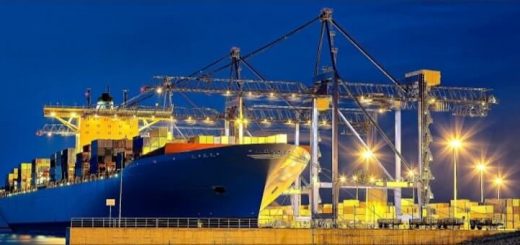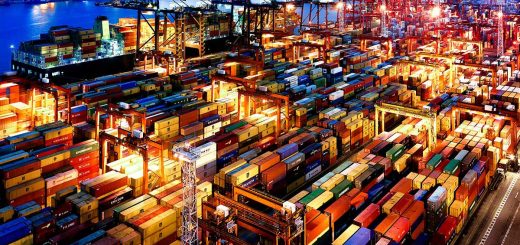Reiterating the Compliance In Freight Forwarding (Benchmark for the Nigerian Freight Forwarding Industry)

What Is Compliance In Freight Forwarding?
Compliance in Freight Forwarding can simply mean the Forwarders’ strong commitment to fulfilling customer requirements; adherence to existing regulations, laws and standard procedures governing the movement or management of air, sea, land or rail freights across diverse local and international boundaries.
Scenario: There are standard rules guiding the Importation of production equipment from the United States, China or Germany for instance, into Nigeria that must be totally complied with. This means that the importer must process a Form M and PAAR; obtain a SONCAP Certificate (from the origin country), product certificate, and local insurance certificate; accurately declare the value of the cargo; ensure that cargo is packed or stored with the right material; properly classify them; pay the appropriate duties, taxes, levies, terminal charges and other applicable paper works before goods can be cleared at any sea, air or land ports in Nigeria.
Compliance in freight forwarding is the standard benchmark for measuring integrity, trustworthiness and global best practice in the Freight Forwarding and logistics industry. And more than ever before, more regulators, Forwarders and shippers across the globe – even Nigeria are showing a commendable level of commitment to compliance with globally established and locally applicable standard regulatory requirements.
Compliance in Global Freight Forwarding is also measured by appropriate documentation, appropriate cargo classification, accurate cargo valuation, accurate invoicing, payment of appropriate duties, taxes, levies, and 100% adherence to other country-specific and safety requirements. In other words, to import goods into Nigeria for instance, all requirements (as shown below) must be met.
The Nigerian Context
Though the industry has had to contend with challenges ranging from reputational damage; incompetence; non-compliant Forwarders, regulatory agents; even shippers, the Nigerian authorities have shown positive flashes of renewed energy in enforcing stricter measures for ensuring that all stakeholders maintain the established compliance benchmark.
Import compliance in the Nigerian context can be measured by adherence to the following:
- A processed Form- M– Duly completed e-Form-M submitted electronically to an authorized bank with:
- A proforma Invoice
- Local Insurance Certificate
- Regulatory Certificates like NAFDAC, SONCAP, NESREA
- A processed PAAR – Pre-Arrival Assessment Report
- Combined Certificate of Value and Origin (CCVO) containing:
- An e-Form ‘M’ No
- Adequate description of goods.
- Port of destination (Apapa, Tin Can or Muritala Muhammed Airport cargo terminal for instance).
- Shipments Identification, Country of Origin and Country of Supply.
- Final/ Commercial Invoice
- Packing List
- Bill of Lading (for sea freight)
- Air Waybill (for airfreight)
- Certificate of product analysis.
- Manufacturer’s Certificate of Production (where applicable)
- SDG-Single Goods Declaration Form. This form is submitted electronically and after registration, it is printed and attached to the other clearing documents.
An E-Form M is a mandatory documentation process put in place by the Federal Government of Nigeria through the Federal Ministry of Finance (FMF) and the Central Bank of Nigeria (CBN), to monitor goods that are imported into the country as well as enable the collection of import duties where applicable.
PAAR means Pre-Arrival Assessment Report, which is required by the Nigerian Customs Service for the clearance of goods entering Nigeria.
NAFDAC (National Agency for Food, Drug Administration & Control) is the body in charge of food and drug-related import regulations and just recently, they issued a directive which took effect from September 9, 2019, prohibiting the use or acceptance of non-digital licenses, certificates or permits for the importation of NAFDAC regulated goods, meaning that:
- NAFDAC licenses, permits and certificates must now be obtained electronically
- Only digital forms issued by NAFDAC will be valid for the importation of NAFDAC regulated goods, as stated above.
- Applicants must now input the approval reference code stated on the NAFDAC e-licenses for Form-M, Pre-Arrival Assessment Report (PAAR) processing; Customs Clearance and other and other trade-related transactions.
SONCAP (Standard Organisation of Nigeria Conformity Assessment Program) is a mandatory pre-shipment verification of conformity to Standards process used to verify that products to be imported into Nigeria are in conformity with the applicable technical regulations before shipment. SONCAP certificate is usually processed from countries of origin through designated quality testing agencies like COTECNA, SGS, and Intertek before importation.
NESREA (National Environmental Standards and Regulations Enforcement Agency) certificate is required for the importation of used equipment or machinery that may have the potential to cause a negative environmental impact.
In view of all that has been said, Fortune Global is reiterating its unwavering commitment to compliance in the freight forwarding with applicable standards, laws, and regulations in all its business transactions anywhere in the world. This commitment is not only borne out of our knowledge of the consequences of non-compliance. It is a product of our value orientation and a key performance benchmark for us.



